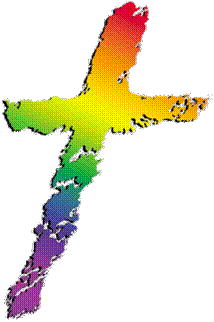I have always had a problem with "Decision Theology." Maybe it is the fact that I have spent most of my life around "Fundies" who continually asked me if "I had decided to follow Jesus" or if I "had a personal relationship with Jesus." The problem with this theology is that after you make such a decision, the folks pushing someone to make such a decision would then set the criteria for which such a person should live. If we had made such a decision we would live by their standards, and I found that almost impossible. My argument against Decision Theology has always been that God has already decided to love us; so for us there is no decision to be made by us. I know, many of you are saying "you have to do something!" We do, we have to be receptive of God's love for us and remember what Luther said in his explanation of the Third Article of the Apostle's Creed, "I cannot by my own reason or strength believe in Jesus Christ." Any attempt to make this belief into a human work is useless. It is through the work of the Holy Spirit, and not by any decision on my part, that I believe.
"Made a decision to turn our will and our lives over to the care of God as we understood Him/Her*" is step 3 in the 12 step program of AA. In this understanding of what a decision is I am in full support. A person in the pits of addiction has no understanding of God and God's grace. A person in addiction may acknowledge the existence of God, but that same person plays the role of God. They know what is best for them, they know what is right and they will decide what is right and what is wrong and they will not listen to anyone else's opinion, especially those who are closest to them, the very people they love.
When the person in recovery decides to "turn their will and their lives over to the care of God" is not a statement of salvation, but a statement of recovery! They have broken free from their job at playing God and have come to the conclusion that Gerhard Forde made in his book Where God Meets Man, God is God and we aren't. This is a huge step in the recovery journey, maybe the most difficult. When we have accepted the fact that we are powerless we must fill that void with another power, and that power cannot be us, we are the ones who lost the control in the first place.
The God (also referred to as Higher Power in many AA circles) of our understanding is also critical. At Recovery Worship that God is the God revealed in Jesus Christ. But we also understand that for people new to Recovery Worship that might not be the case. We teach whatever Higher Power is keeping you sober is good, however, and this is important, as you continue on your spiritual journey keep your options open. This is where I see our Lutheran of the Spirit breaks in, the Spirit, working within the church, within the person, moving from an obscure Higher Power to the love that is found in Jesus Christ. They didn't decide to follow Jesus; the Holy Spirit stirred their understanding, hearing words of forgiveness not words of condemnation and the words of the Gospel, led them to believe in Jesus Christ. It works, that is why, I believe, I have done more adult baptisms at Recovery Worship than infant baptisms.
*I have changed this understanding because a large number of women at Recovery Worship struggle with the concept of a loving Father; many of whom were sexually abused by their fathers when they were young. We have been able to free our understanding of how God is revealed to us at Recovery Worship by discarding traditional "God Talk" from our worship service.
See you next week for Step 4
